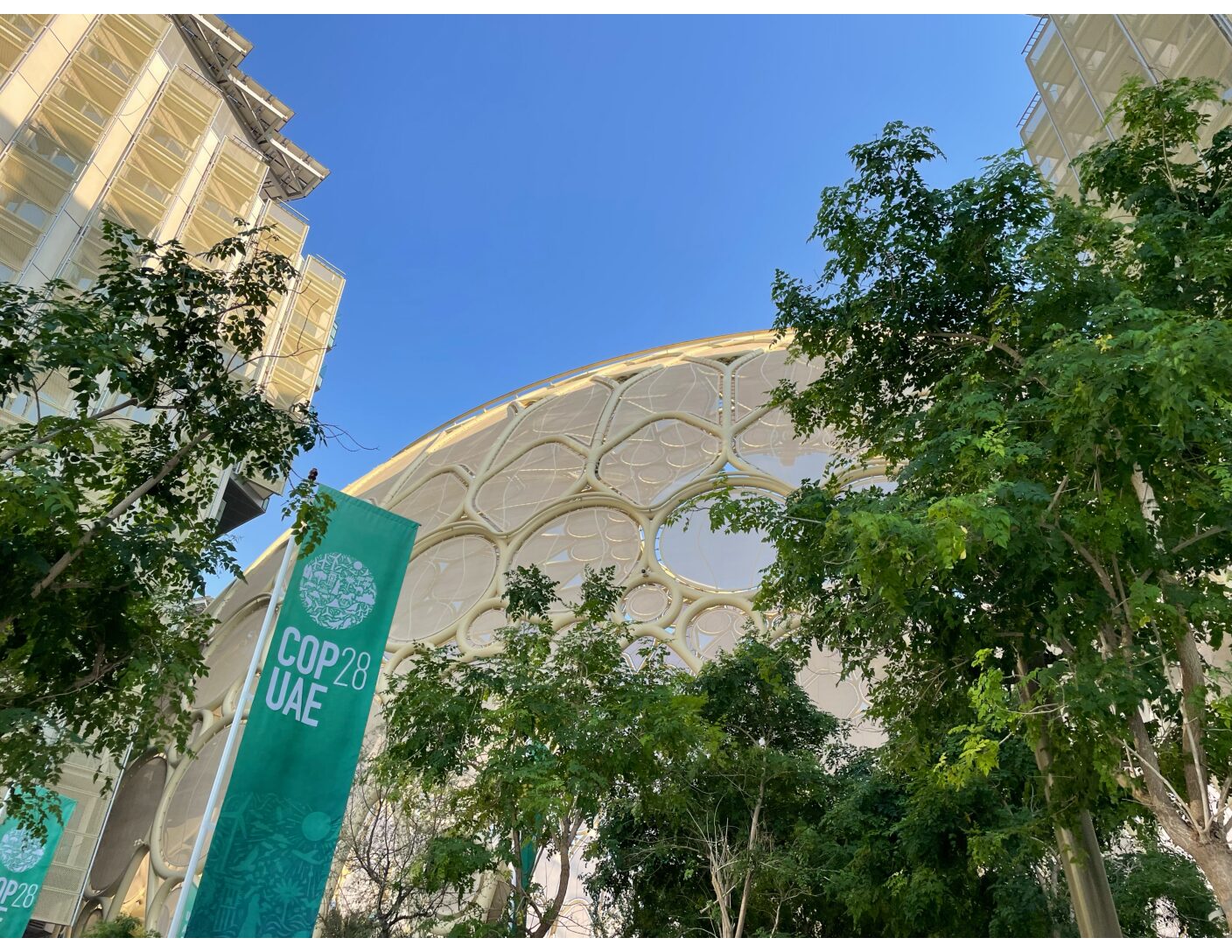By Mckenna Ryan and April Kwan
Even home sick at the Vatican, Pope Francis has been making a historical impact at this year’s COP. Since his 2015 publication of Laudato Si’: On Care For Our Common Home (six months before historic COP21, no less), Pope Francis has cemented the Catholic Church as a powerful ally in the fight against the climate crisis. He has used his unique position to galvanize one of the world’s largest spiritual communities, and, this year, has been a strong advocate for the total elimination of fossil fuels and prioritization of the most vulnerable.
On December 5th, we stumbled into Addressing non-economic loss and damages through a shared understanding for human development and ecology, an event we later learned was organized by the Holy See (the governmental body of the Vatican). We were interested to learn about the unique approaches to resolving harm inflicted by climate change that go beyond just throwing money at the problem. Panelists, including Paolo Conversi of the Holy See and Musamba Mubanga of Caritas Internationalis, emphasized the innate interconnectedness between humans and nature and criticized hierarchical views of the natural world. They critiqued our society’s tendency to center materialism and economic gains over human well-being. They emphasized that this conversation cannot be separated from the larger “Loss and Damage” framework, because cultural losses are just as significant as economic losses. Therefore, focusing on issues more intimate and localized to humans, they brought this idea to express that humans were not made to simply survive, but to thrive.
We left Addressing non-economic loss and damages with mixed feelings and many follow up questions. What role should religion play in this conversation? African Jesuit priests shared heartfelt stories about how their Catholic faith has allowed them to meaningfully help their communities impacted by natural disasters. We were encouraged to see language around spirituality and well-being becoming more mainstream at the COP, and appreciate the Vatican’s role in this. Regardless, we can’t help but be concerned that other voices are being left behind. Where is the acknowledgement of Christianity’s colonial legacy in Africa? Of the immense harm done to queer people, women, and children in the Catholic Church? Can we actually trust such a powerful colonial institution to undertake the necessary and radical change necessary to address climate change? We would’ve loved for the panelists to address those ideas, making for a more cohesive panel and a richer discussion. We were left with unanswered questions, wanting to hear more.
As excited as we are to see a growing discussion of non-economic loss and damages, we feel that this area cannot be addressed solely by faith-based organizations. Regardless, the presence of the Holy See at COP28 has provided powerful support in the fight against climate change, and we are looking forward to seeing the new perspectives that they bring to this work.
